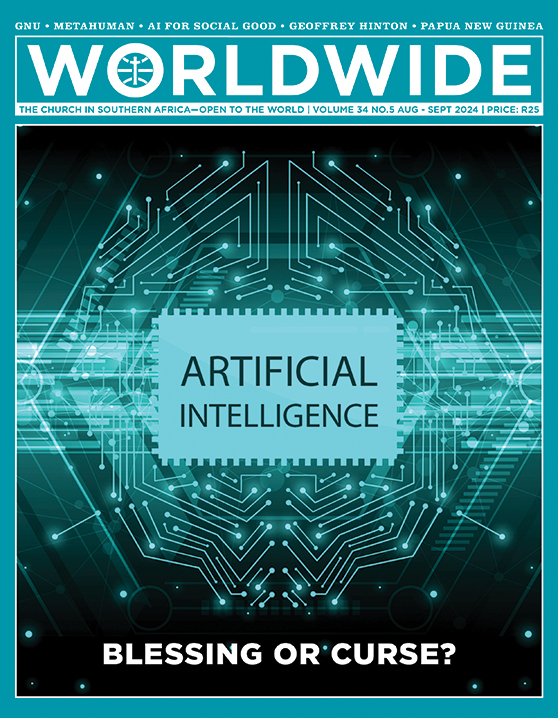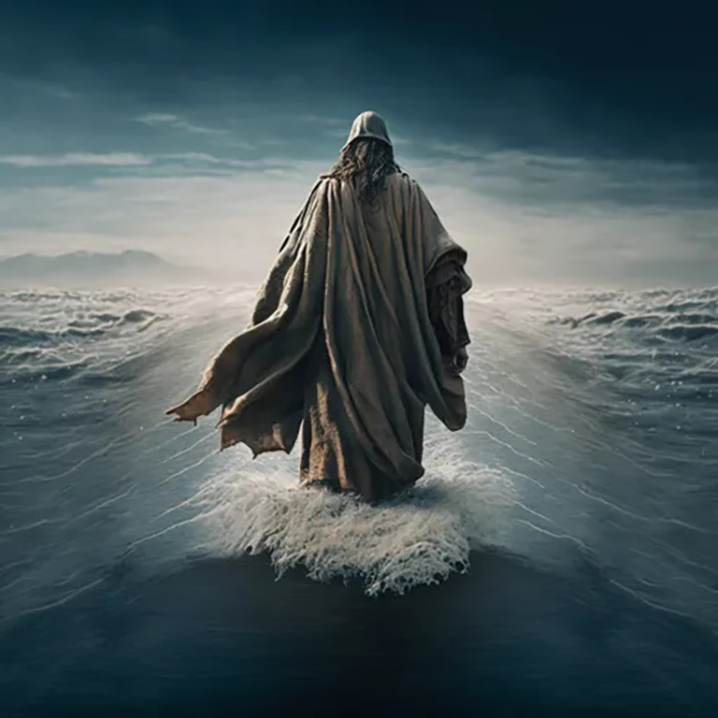
ARTIFICIAL INTELLIGENCE: BLESSING OR CURSE?
The image, according to Chat GPT, features the phrase “ARTIFICIAL INTELLIGENCE” at its centre, overlaid on a stylized depiction of a microchip and circuitry. This design symbolizes the integration of advanced AI technologies within modern electronic systems, emphasizing the critical role of AI in driving technological innovation and enhancing computational capabilities across various industries.
THE LAST WORD

“DO NOT FEAR THOSE WHO CAN KILL THE BODY, BUT CANNOT KILL LIFE” (MT 10:28)
The advent of Artificial Intelligence (AI) has raised some concerns and fears regarding our common future as human beings. Jesus’ invitation not to fear does not exempt us from being wise, notwithstanding of searching for wisdom of heart and prudence. However, AI cannot replace the human spirit or create a soul which is finally destined to live in communion with God.
BY FR SILVANO FAUSTI SJ | BIBLIST AND WRITER
“DO NOT FEAR,” Jesus says to the apostles, after having sent them out like sheep amid wolves. While fear is often the prime motivator for human action, it should in fact be merely the brake! Avoiding dangers in life is justified; however, fear should not become the worry which distracts us from every action. The instinct of self-preservation is in itself healthy: it serves to avoid evil. However, it is an inadequate principle for living, if at the same time it leads to a lack of trust in the existence of goodness in the world. Without trust, one is stuck, living in despair; without fear, one becomes foiled and reckless—only the unconscious person, apart from dictators and madmen, is not afraid.
The question is not how to save the body, but how to live in it in filial and brotherly love, which eventually leads to eternal life.
Trust and fear are two antagonistic principles, both necessary elements of our lives. The latter abounds, the former is in short supply. The Lord has come to offer us trust in Him, which frees us from the fear of death, with which the enemy keeps us in bondage all our lives (Heb 2:15). We are mortal. Death is a natural event, and is not the end of ourselves, as our egoism fears, but the beginning of the Other and of our communion with Him.
The beginning and end of our lives on earth are not the nothingness we fear, but communion with the Father who loves us and whom we love. Perfect love casts out all fear (1 Jn 4:18). As long as we live, our love is, however, imperfect. That is why we still experience fear; yet fear should not dominate our lives. Fear makes us do what we fear; only trust makes us do what we desire.
Although the apostles may often feel fear and uncertainties (1 Cor 2:3), they must not be guided by these but need to trust the Spirit of Him who gave His life for all (cf. 2 Cor 5:14).
Let the fear of death not become a philosophy of life. Let our “philosophy” be the “love of wisdom” of the Father. The human being is constantly torn between two loves: that of the wisdom of the flesh, which ends up in the fear of death, and that of the wisdom of the Spirit, which opens us to trust and life.
Jesus says: do not fear those who kill the body, … wolves can kill the body. The body in itself is not life: the body comes from the earth and returns to it. The life that cannot be killed is that of the Spirit, and love from which life stems. The question is not how to save the body, but how to live in it in filial and brotherly love, which eventually leads to eternal life. Whoever does not live this way is already dead!

